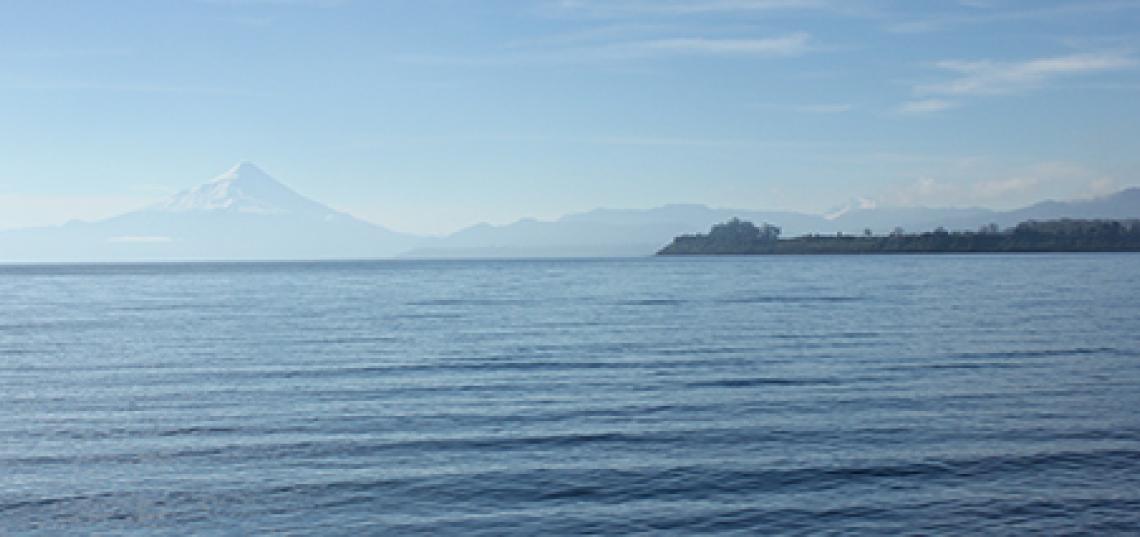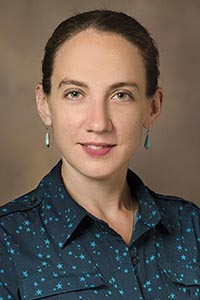
Imagine conducting fieldwork in a rainforest in Southern Chile while surrounded by volcanos, fjords, mountains, and an ocean alive with Blue and Humpback whales, orcas, penguins, sea lions, seals, Chilean Dolphins, Peale’s Dolphins, and many other fascinating creatures.
Assistant Professor of Library and Information Science Gretchen Stahlman will be taking such an adventure in just a few weeks. As part of the expedition “Mission Patagonia,” she will join a group of educators, scholars and professionals to learn about ocean, environmental, and sustainability sciences.
The first trip of its kind, Mission Patagonia is a collaboration between the MERI Foundation and Associated Universities Inc. (AUI) and will take place in the Melimoyu Elemental Reserve in northern Patagonia, Chile.
Stahlman said she will collect multi-purpose data to explore models of promoting science literacy.
According to the website, “While on the 10-day expedition, participants will investigate innovative approaches to effective conservation and climate change mitigation and share their experience with networks back home.”
Stahlman is taking the trip to learn about these efforts and collect social science data for her two-pronged research agenda. On one hand, she will assess the Mission Patagonia program broadly within the context of science literacy and communication, and global climate change research. On the another hand, she will pursue a set of research questions related to the global importance of local places of data collection and how research is conducted in remote locations such as Patagonia.
 Stahlman said she will collect multi-purpose data to explore models of promoting science literacy. She will contribute her findings to AUI to help them assess the program, because they aim to formally evaluate this year’s trip before making adjustments for future trips.
Stahlman said she will collect multi-purpose data to explore models of promoting science literacy. She will contribute her findings to AUI to help them assess the program, because they aim to formally evaluate this year’s trip before making adjustments for future trips.
“I will help AUI evaluate the program, including its impact, and the experiences and perceptions of the participants, specifically how they have been able to incorporate the experience into their work,” Stahlman said. “Participants include university professors, STEM educators, planetarium leaders, and even a medical doctor. They all have different reasons for being there. I hope to finish my analysis quickly to give AUI time to absorb it and develop next year’s program.”
To collect the data for the assessment portion of the project, Stahlman will interview the participants on several occasions: the first time will be after they arrive in Chile but before they get to the site, a second time after they return from the site, and then six months later she will follow up to check on outcomes. Stahlman also plans to conduct participant observation and interviews with researchers at the site.
While this is AUI’s first expedition to Patagonia, Stahlman said Mission Patagonia is modeled after another program that AUI has already implemented called “Astronomy in Chile Educator Ambassadors Program (ACEAP).”
“AUI has been conducting trips to observatories in Chile for several years now and that program has had a lot of impact. One of the participants became a SpaceX astronaut. The hope is that Mission Patagonia will be as successful,” Stahlman said.
Describing her second research goal, Stahlman said, “Chile is a very interesting country with many ecological zones because it’s bordered by the ocean on one side and the mountains on the other, glaciers in the south and deserts in the north, and there is an enormous amount of ecological and astronomical data to be gathered there.
“These research areas are very important to Chile, and at the same time many international researchers also go there to do work. This situation raises critical questions for researchers: how do you collect data and appropriately give back to the places where you are collecting the data? How can we ensure equitable systems to conduct this sort of place-based research?"
“These research areas are very important to Chile, and at the same time many international researchers also go there to do work. This situation raises critical questions for researchers: how do you collect data and appropriately give back to the places where you are collecting the data? How can we ensure equitable systems to conduct this sort of place-based research? These are important questions because while we all live on the same planet, there are social and political systems that we must work through to collect the valuable data that we need. I am thinking about these questions with respect to my own research as well.”
This trip is an extremely special one for Stahlman, she said, because in a sense she’s going home. She lived in Santiago for two years, and during that time she experienced several memorable journeys to the Chiloé Archipelago, a group of islands off the coast of southern Chile.
For the Mission Patagonia trip, participants will fly from the U.S. to Santiago, then travel from Santiago to Chiloé, where they will take a 12 hour ferry trip to the Melimoyu Elemental Reserve.
“I am looking forward to this experience and to working and traveling with a group of interesting people in an amazing place,” Stahlman said.
Discover more about the Library and Information Science Department at the Rutgers School of Communication and Information on the website.
Image: Courtesy of Assistant Professor Gretchen Stahlman
